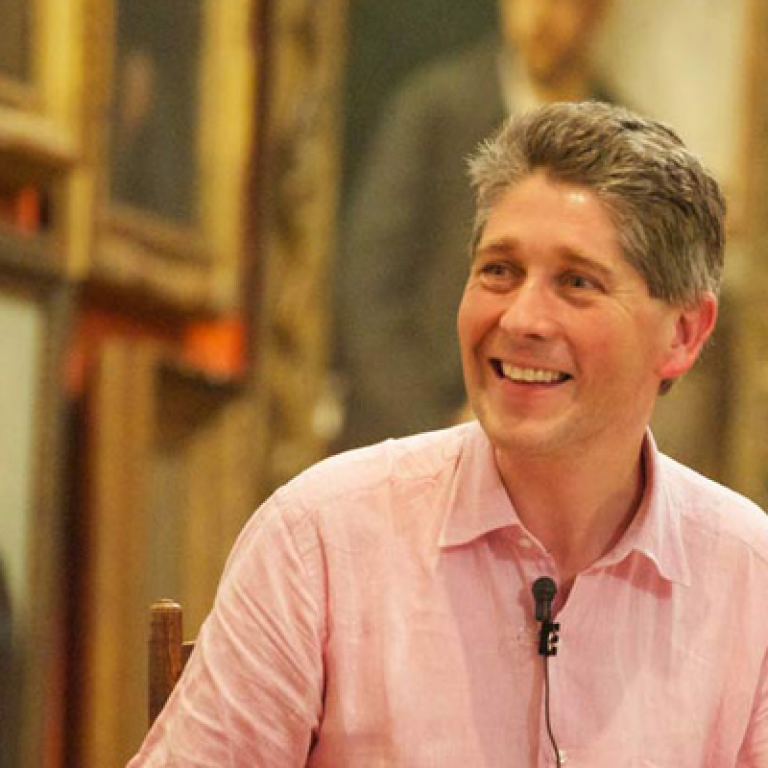Professor Patrick Haggard wins this year’s Reimar Lüst Award
7 December 2022
Professor Patrick Haggard (UCL Institute of Cognitive Neuroscience), has received the Reimar Lüst Award 2022, which honours outstanding research on Franco-German history and Neuropsychology.

The Reimar Lüst Award, consisting of €60,000, is bestowed on up to two recipients each year by the Alexander von Humboldt Foundation and the Fritz Thyssen Foundation. The prize is named after the astrophysicist, Reimar Lüst, who was President of the Humboldt Foundation from 1989 to 1999.
This year Professor Haggard has been honoured alongside Professor Hélène Miard-Delacroix (Department of German at the Sorbonne in Paris). The award is granted to international researchers in the humanities and social sciences who have helped shape academic and cultural relations between Germany and their own countries.
Professor Haggard leads the Action and Body Group at the UCL Institute of Cognitive Neuroscience. In his experiments, he investigates the cognitive processes that occur in people’s brains during voluntary action. Moreover, he also studies how the brain creates a representation of an individual’s own body as a physical object. An understanding of human action control is of great significance to other disciplines in clinical, legal and educational fields. His research therefore meets with broadly-based interdisciplinary interest and triggers philosophical debate: How and why do we experience a sense of control over external events which we direct through our actions? What is the relationship between will, action and responsibility? Professor Haggard will spend the research visit associated with the award at the Berlin School of Mind and Brain which belongs to Humboldt-Universität zu Berlin and works at the interface of the humanities and behavioural sciences with the neurosciences.
We wish Professor Haggard every success with his research visit and look forward to seeing more of his research outputs.
Links to more information:
- Find out more about Professor Haggard’s research group.
- Find our more about the Reimar Lust Award from Humboldt Foundation’s website.
- Listen to an episode of our PALS Podcast, What Works, where Professor Haggard speaks to Professor Sophie Scott about life, family, science and academia.
- UCL Institute of Cognitive Neuroscience
- UCL Division of Psychology and Language Sciences
- UCL Faculty of Brain Sciences
 Close
Close

